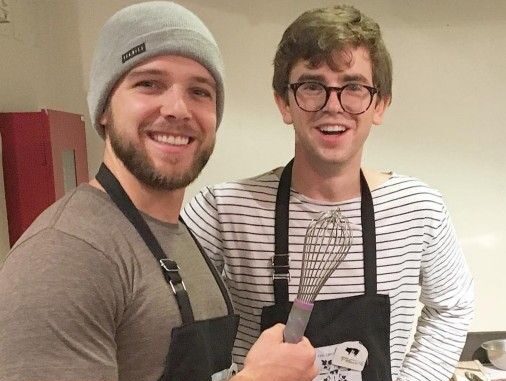
After seven emotionally charged seasons, The Good Doctor is officially coming to an end at ABC. It’s hard to believe that a show that started with a young surgeon with autism and savant syndrome trying to prove himself could go on to deeply touch millions of lives across the world. But all good things must come to an end—and for The Good Doctor, that moment is now.
When The Good Doctor premiered in 2017, few predicted the cultural and emotional impact it would have. The medical drama, adapted from a South Korean series of the same name, introduced us to Dr. Shaun Murphy—portrayed by the remarkable Freddie Highmore—a character who broke barriers in the way neurodivergent people are represented on television. The show didn’t just tell stories about patients in crisis; it gave us a deeply introspective look into a mind that saw the world differently.
The news of the series ending with Season 7 is undoubtedly heartbreaking for fans, but it also comes at a moment that feels organic. Showrunners have expressed that they want to end Shaun’s story in a way that is “true, respectful, and complete.” In other words, they’re not dragging things out—they’re choosing to land the plane gracefully.
And in many ways, it makes sense. Shaun’s journey, from a terrified intern in Season 1 to a confident and married surgical attending in Season 7, has come full circle. We’ve watched him grow emotionally and professionally. We’ve seen him fall in love, lose friends, gain new ones, and most importantly, find his place in a world that once doubted him. The character has reached a point of emotional maturity and self-acceptance that deserves a satisfying resolution—not an open-ended fadeout.

One of the most poignant elements of the series has been Shaun’s relationship with Lea Dilallo. What began as a friendship turned into a deeply moving love story, one that felt earned, flawed, and beautiful. Through miscarriages, miscommunication, and milestones, Shaun and Lea grew together. Their relationship became a metaphor for acceptance—not just of each other, but of life’s unpredictability. Their wedding in Season 6 wasn’t just a romantic moment; it was a culmination of everything the show had built toward. It proved that love, though difficult and complicated, is possible for everyone—including those who society often underestimates.
As we approach the series finale, fans are already preparing themselves for an emotional goodbye. While ABC hasn’t yet revealed how the show will end, the creators have promised a send-off that honors the journey so far. It’s expected to be a blend of nostalgia, reflection, and possibly a glimpse into Shaun’s future—a future built not in spite of his differences, but because of them. There’s speculation about potential cameos from departed characters, full-circle moments that tie back to Season 1, and even a few surprises. But more than anything, fans want closure. They want to say goodbye to these characters in a way that feels meaningful, not rushed.
Though The Good Doctor will no longer air new episodes, its legacy will continue. It has opened doors for more authentic representation of neurodivergent characters in mainstream media. It has sparked conversations around empathy, inclusion, and what it means to be a doctor—and a human being. In a time when medical dramas often focus on high-stakes shock value, The Good Doctor focused on heart. It slowed things down. It let us see the world through Shaun’s eyes—where every sound was louder, every emotion harder to interpret, but every moment potentially life-changing. And in doing so, it helped us better understand those around us.
